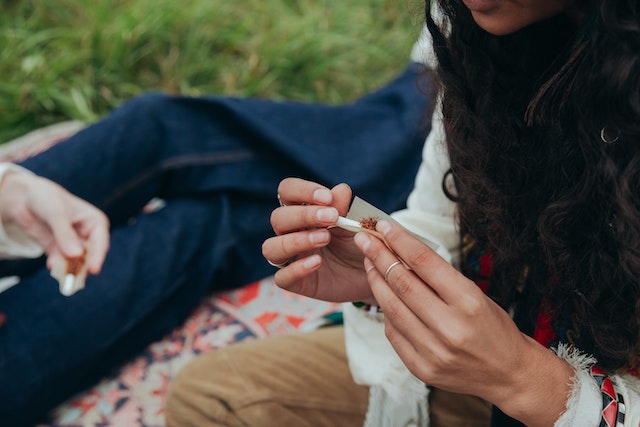Vaping is the practice of using e-cigarettes or vape pens. Vape pens can be described as electronic devices that heat liquids to produce vapor for users to inhale. Vape pens can use cartridges that contain nicotine, tobacco, and sometimes marijuana. More reports are being made about vaping and seizures as the trend becomes more mainstream. Our Massachusetts treatment center is currently investigating whether vaping can cause seizures.
Can Vape Pens Cause Seizures?
The brain’s sudden and abnormal electrical activity can cause seizures. Although many people associate seizures with convulsions that cause shaking of the entire body, seizures can also be caused by abnormal electrical activity in the brain.
Another sign of seizures is a loss of awareness or consciousness, as if the brain has temporarily shut down. These moments can make it seem like the person is staring into space or suddenly stopping moving.
Seizures can cause people to fall. Most seizures resolve within minutes or seconds. After that, the person might feel confused or sleepy.
A person might also forget what they were doing prior to the seizure. Although they are not likely to cause permanent harm, severe convulsions or bodily shakes may lead to injury that will require medical attention.
The FDA found 127 cases of seizures and other neurological symptoms in 2019, mainly due to vaping devices and e-cigarettes. These seizures were most common in teenagers and young adults. 1
These vaping seizures can occur within a matter of minutes or one day following use, according to the FDA. Seizures also occurred in long-term and first-time users. 1
People have had seizures following vaping. This could also be due to marijuana use or stimulants (amphetamines). This link was further investigated by the agency, as well as whether vape pens or cartridges make a difference.
The FDA found that vape pens can cause seizures if users inhale high levels of nicotine or are exposed to it. The FDA noticed a slight increase in seizures reported to them in 2018, but it was not significant.
They found that there were 35 cases of seizures related to e-cigarettes in the records of poison control centers between 2010 and 2019. The reports covered first-time, long-term, and repeat users of e-cigarettes.
Vaping is linked to seizures and lung disease. Long-term vaping can lead to nicotine dependence, depending on how severe the habit is.
Seizures, Nicotine Overdose
So why does nicotine cause seizures? Nicotine has a structural similarity to the neurotransmitter Acetylcholine. It acts by activating the nicotinic Cholinergic Receptors (nAChRs).
Nicotine binds to the nAChRs and opens the ion channel, allowing calcium or sodium to enter the receptor. Other neurotransmitters are also released by nicotine, such as dopamine and norepinephrine.
These chemicals have the following functions: pleasure, arousal and stimulation; reward, motivation; mood stabilization; and reduction in anxiety. Similar to stimulants, nicotinic actions can also cause increased metabolism and suppression of appetite.
Neuroadaptation is a process in which the brain develops tolerance to nicotine over time. This can be caused by long-term nicotine use. Withdrawal symptoms can occur when regular nicotine use is stopped. These withdrawal symptoms include a sudden decrease in neurotransmitters.
There is an increased risk of nicotine tolerance and seizures in people who overdose. Seizures have also been reported in children and adults who accidentally ingested nicotine-containing vape pen and e-cigarette cartridges. Although children are more likely to overdose on nicotine, it can also happen in adults.
You may experience rapid heart beat, confusion, seizures, respiratory depression, or even death from nicotine overdose. These symptoms may occur in as little as 15 minutes after nicotine consumption.
Although there are reports that nicotine vaping can cause seizures, further research is needed to verify this. The habit has been linked to lung disease, oral problems, and many other health issues.
Consider Vaping as a gateway drug
Vaping, in addition to the danger of seizures, is also considered a gateway drug. Vaping can open the door to other forms and abuse. It not only exposes the body to brain-altering chemicals such as nicotine, but it also places vapers in situations that encourage substance abuse.
Our Massachusetts inpatient drug rehabilitation can help if you or someone you love has fallen for addiction to drugs or alcohol. To help clients get through withdrawal safely and to prevent them from ending treatment too soon, we offer medically supervised detox.
We offer treatment for substance-specific addictions, including heroin, cocaine and meth. Our specialists can help you or your loved ones achieve long-term sobriety.
Call All In Solutions Treatment Centers at 855-762-39796 for more information on our Massachusetts drug rehab programs.
Source:
- FDA – E-cigarette users are experiencing seizures, most reports involve young adults and youth.
Similar Reading:
The Legal Vaping Age
There is a difference between marijuana and tobacco
The post Can Vaping Cause Seizures? All In Solutions Treatment Centers was the first to publish this article.
Learn More:
- Florida Christian Rehabs
- Faith-Based Addiction Recovery NJ
- Addiction Treatment in FL
- Treatment Centers in NJ
Our locations include:
Can Vaping Cause Seizures?-All In Solutions-All In Solutions - A Solutions Based Behavioral Healthcare Group
from All In Solutions https://ift.tt/532JpQ9
via IFTTT
